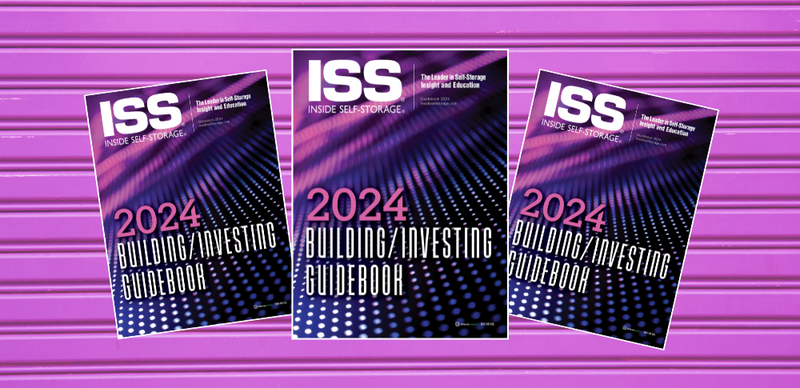Everyone has good intentions when it comes to their 401(k), but some may lose sight of their end goal. Here are eight common mistakes self-storage employees should avoid when it comes to planning their retirement.
October 16, 2013
By William H. Black Jr.
Does the self-storage company you work for sponsor a 401(k) plan? If so, your employer has no doubt paid careful attention to plan design, underlying investment options, and employee awareness and comprehension of the plans features and benefits. Everything seems perfect. But even when employers and employees have the best intentions, things can go wrong.
Following are the most common mistakes I see self-storage employees make in regard to their 401(k) plan. The biggest is failing to participate. Now lets look at some other issues that can create under performance.
Mistake 1: Leaving Retirement for 'Tomorrow'
Many employees who are eligible for participation in the company 401(k) plan put it off until the next enrollment because of this or that reason. The sooner you start saving, the more youll have at the targeted date. When were 25, we never think about being 65, yet it comes so fast!
Taking advantage of a companys 401(k) plan has many benefits. Your contribution is income-tax deductible. The employers match can be looked at as free money and a free return on investment. Over time, those contributions, plus any earnings, can create quite a sizeable account value. Keep putting it off and miss the opportunitythats a mistake!
Mistake 2: Not Deferring Enough
Many new plans have automatic enrollment. In other words, an employee is automatically enrolled and 3 percent of each paycheck is automatically withheld and sent to his 401(k) account. To opt out of the plan, he has to elect not to participate.
This is simply a start, however. Saving out 3 percent of your income is not enough to effectively get the job done for retirement. Employees should increase this deferral percentage to somewhere around 10 percent to create a more robust savings. Its simple: Save more and spend less! Once the decision is made to withhold those additional monies from the paycheck, theyre hardly missed. It's amazing what stuff we really dont need.
Mistake 3: Ignoring the Benefit of the Employers Contribution
If your employer will match your contribution dollar for dollar up to 3 percent of salary, look at that as a 100 percent gain. You put in $100, your employer puts in a $100 match, your account now has $200 in it, yet only $100 is out of your pocket! Add on the investment results, and you are on your way! This ignores the tax benefits you get from the contribution being deductible from your taxable income. Add it all up, plus the time value of money, and the future account value can be quite significant.
Mistake 4: Never Changing Asset Allocation
When you enroll in a 401(k) plan, choices have to be made as to where your contributions will go. In other words, which investment options will you, the participant, choose? Thats where it starts. However, those choices should not, generally speaking, be permanent and should be monitored and changed when appropriate.
Its remarkable how many participants never change the initial investment choices. Dont be that person! Are you using the same cell phone you were using 10 years ago? Of course not! Investment options in a 401(k) plan need changing from time to time, too.
Mistake 5: Withdrawing or Borrowing From the Account
Need a loan? Usually its best to get it anywhere other than from your 401(k) account, even if you do have the discipline to repay it. Loans and withdrawals have more devastating results in reducing the account value than many, if not most, other factors. Withdrawals (not loans) are taxable as ordinary income and subject to a 10 percent excise tax if youre under the age 59.5. That money is now unavailable for investing and future uses.
Often the withdrawals are for depreciating assets, like a car, etc. Consider the 401(k) account monies as untouchable. Avoid the temptation to access those funds and, in the long run, youll be glad you did.
Mistake 6: Ignoring Your Account
Pay attention to your periodic statements. Monitor the fund choices, their results, etc. Have a plan! There should be quarterly or semi-annual meetings held to discuss the plan. At a minimum, use that time to monitor your investment allocations, etc. Consider making changes when appropriate. Take action!
Mistake 7: Obsessing Over Your Account
Dont micromanage! Dont be that guy, the one who checks his account daily, worrying that values dipped this week, this month, etc. These are long-term programs. Treat them as such. Dont try to day trade or follow every newsletter that has the secret. Develop a good strategy on how to handle your accounts investments and stick with it, making changes as needed.
Mistake 8: Not Rolling Over the Account Balance
In todays society, many people will have worked for multiple companies by the time retirement comes around. If we took out our 401(k) plan and spent part of it every time we left one employer for another, there'd be nothing left for retirement. Dont fall into that trap. When leaving one company, roll your 401(k) balance into the new employers plan. If the new employers plan doesn't allow for it, then roll it over to an IRA account. Just dont take that money and spend it!
When it comes to your 401(k) plan, use common sense and discipline and give some thought to the future. Prepare for the inevitable and do so wisely.
Note: This discussion is not intended as tax advice. The determination of how the tax laws affect a taxpayer is dependent on his particular situation. A taxpayer may be affected by exceptions to the general rules and other laws not discussed here. You are encouraged to seek help from a competent tax professional for advice about the proper application of the laws to your situation.
William H. Black Jr. has been in the pension-administration business for 34 years. His firm, Pension Services Inc., administers defined contribution and benefit plans and employs an ERISA attorney, an enrolled actuary and a complete clerical staff. He is a speaker and author for several industry journals and has appeared on financial radio shows to discuss retirement and financial matters. To reach him, e-mail [email protected].
You May Also Like





